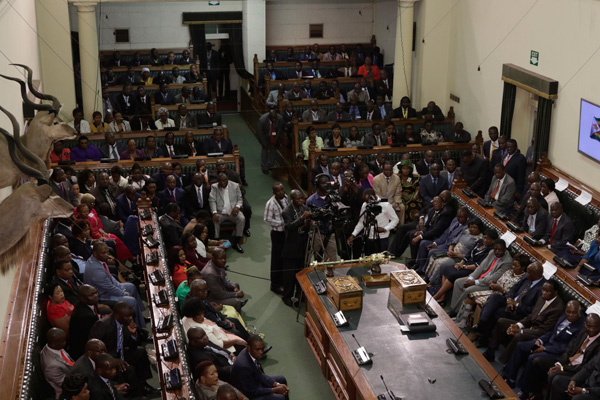By Albert Nxumalo
A Member of Parliament has raised concern that the proposed legal age of sexual consent gives room to the rampant abuse of girls under the proposed Marriages Bill.
There is a view that the Bill does not deal with the age of consent to sexual intercourse.
Child rights and women lobby groups have called for the setting of both marriageable age and age of consent to sexual intercourse at 18 years.
Contributing to the ongoing Marriages Bill debate in Parliament, Dzivarasekwa MP Edwin Mushoriwa argued that if the Bill is passed without amendment it shall be lawful to impregnate a 16-year-old, but illegal to marry them until they reach the age of 18.
“I want to start with the abolition of child marriages which I believe is a commendable thing to do,” said Hon Mushoriwa.
“What I seek Mr Speaker is for the Minister of Justice (Ziyambi Ziyambi) to then help us in terms of the issue that has been raised by other Hon. Members with respect to consent to sex – the 16 years.
“The challenge that we have been told within our constituencies is that if you leave the age of consent at 16, it gives room to older men to possibly abuse those 16-year-olds knowing well that the law does not oblige them to marry them because remember, they are supposed to be married after the age of 18.
Mushoriwa added: “What then happens is that the old men will marry 16-year-old girls and abuse them knowing fully well that if they get pregnant, they will not marry them because it is against the law.”
The legislator asked if it was possible to raise the age of consent from 16 to 18 years so that whoever impregnates a girl who is less than 18 years will be subjected to a charge of statutory rape.
There is a suggestion that those who marry young girls should be imprisoned for five to ten years as it thought that it might restrict many men from marrying young girls below the age of 18.
He also said that the proposal to make lobola non-mandatory (or optional) while making chiefs marriage officers puts the traditional leaders in a precarious position since they are the custodians of the same tradition that makes lobola mandatory.
“The other issue has to do with the question of lobola. I understand from the Bill that it is no longer a prerequisite. Lobola is not being abolished, but it is not a prerequisite.
“However, the challenge is; if we are going to have our chiefs who are supposed to be the custodians of the values of our society and you want our traditional leaders to violate some of the things that our tradition hold to be important.
Mushoriwa said whenever a marriage ceremony is done from a traditional perspective, lobola is a key ingredient of the union.
“I do not understand and I do not know whether it will be prudent and possible for our traditional leaders like chiefs to be asked to simply allow Peter and Marry who want to get married whilst turning a blind eye to the question of whether or not the man would have paid lobola or not.”
He suggested that there should be a “balance and make sure that whatever we do, we take everybody on board. Those who do not want to have the issue of lobola being tabled should go to those marriage officers who can turn a blind eye to the issue of lobola.”

